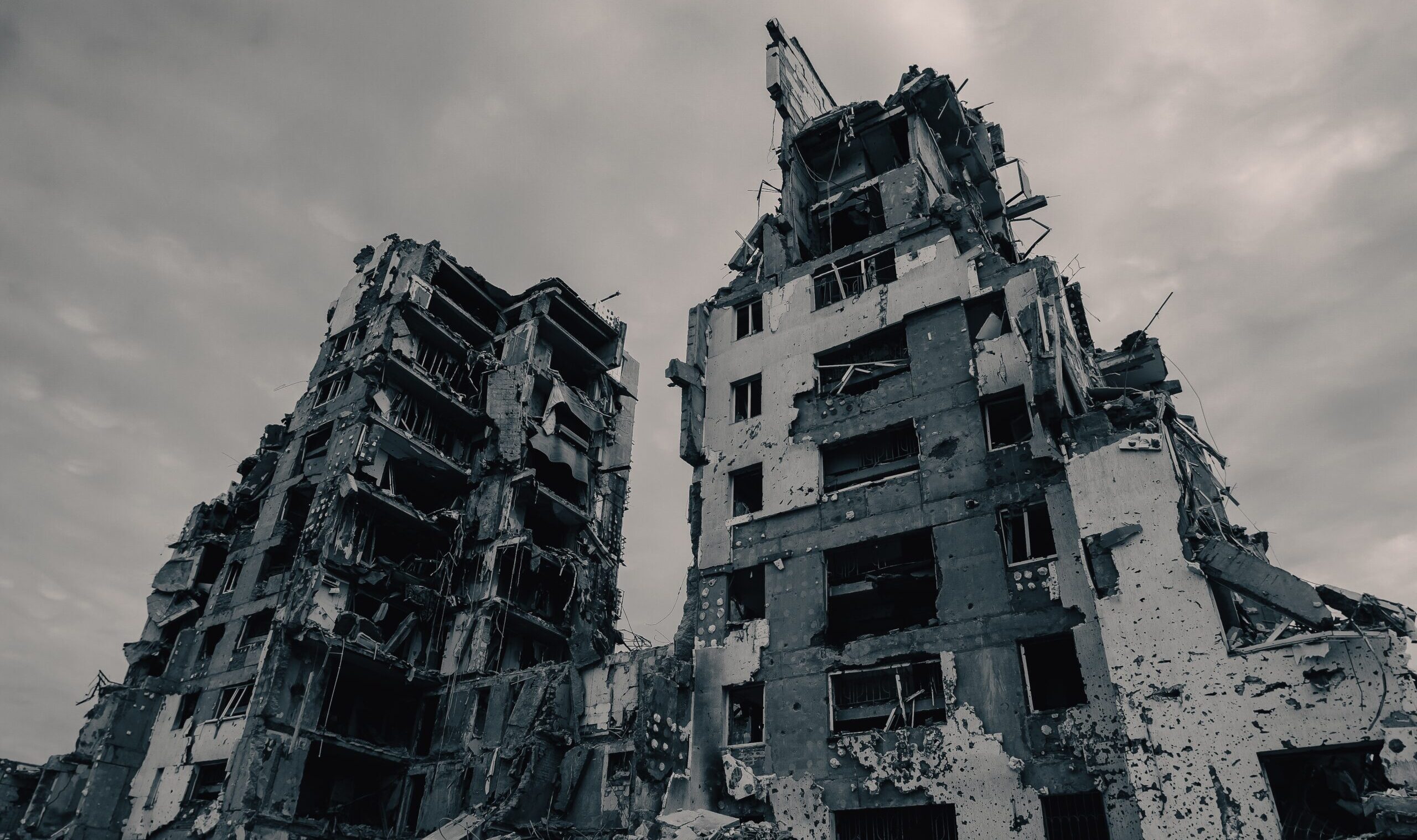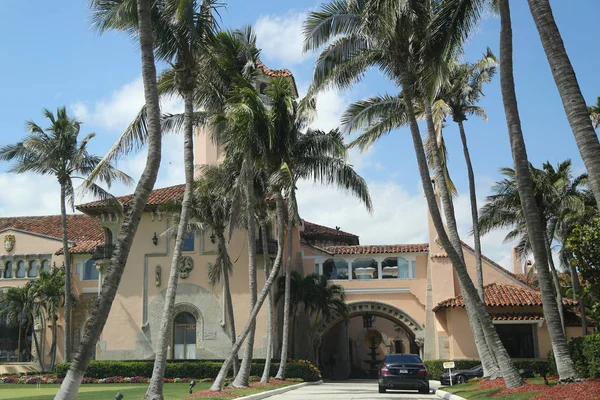What Is the Russo–Ukrainian War About?
Russia and Ukraine have clear interests; everyone else, not so much.

Peace was once the objective of American statesmen. Today, however, virtually everyone in Washington seems to favor war. So it is with the Russo–Ukrainian conflict. Donald Trump’s desire to end the fighting has caused barely suppressed horror.
Unfortunately, if, as rumored, he hopes to achieve peace by threatening Russia with a massive increase in aid to Kiev, his effort is bound to fail. More support won’t remedy Ukraine’s greatest weakness: manpower. More money would, however, betray his supporters who believed they were voting for America First, not Kiev über alles.
The case for peace is clear. The U.S. risks its proxy war against Russia going hot, while pushing the latter into ever closer relationships with China, Iran, and North Korea. Moreover, Washington is heading toward insolvency, spending nearly trillion dollars annually to finance its rapidly escalating debt. All the while, Ukraine is being destroyed.
How does the Washington “Blob” justify Uncle Sam’s latest endless war? With a series of unconvincing and inconsistent arguments.
Allowing Russia to prevail will undermine the “rules-based international order.” That order is a pious fraud, promoted by states that concocted rules for their benefit and break them when convenient. Indeed, the first Trump administration was infamous for using human rights as a weapon against adversaries while coddling more repressive friends. American policymakers should ask whether the order can survive the West’s multiple violations.
The international community should not allow aggression to go unpunished. Russia’s invasion of its neighbor was unjustified. However, the U.S. and Europe are no models of propriety. Like other great powers, they embody the infamous Athenian boast: “The strong do what they can and the weak suffer what they must.” The West opposes aggression, except when it doesn’t—like NATO’s dismemberment of Yugoslavia, America’s invasion of Iraq, the allies’ regime change operation in Libya, and Saudi Arabia’s brutal intervention in Yemen’s civil war. In the last quarter of a century alone, hundreds of thousands of civilians have died in Washington’s aggressive wars.
A Russian victory would provide an open invitation to potential aggressors. Not just in one or two conflicts but, argues Blank, “across Eurasia.” Trudy Rubin of the Seattle Times claimed that such a result would “signal American weakness. That would encourage a new period of aggression by Russia, China, North Korea and a nuclear-capable Iran.” In fact, Ukraine is the exception rather than the rule, when the West aided a victim state. The U.S. and Europeans have routinely refused to act against aggression and even genocide in Africa, the Middle East, and Asia—unless oil is involved. Indeed, as noted before, Western governments often have aided allies and partners committing such crimes.
In any case, most aggression is unique and reflects local circumstances with little reference to what is happening elsewhere. Consider fears that Xi Jinping will join Putin as another wannabe-Hitler and invade Taiwan. Beijing is more concerned about its capabilities than Ukraine’s deficiencies. Moreover, Taipei’s defenders expect America to go to war to save the island state if invaded, precisely what Washington has refused to do on Kiev’s behalf. The fact that Americans were not willing to die for Ukraine should raise questions whether they would be willing to do so for Taiwan.
Failing to defeat Russia will encourage it to step up its campaign against America, in cooperation with other antagonists. The Carnegie Center’s Alexander Baunov alleges that “Ukraine has become a tipping point in a global struggle between the Western elite and a new, Russian-led order: once Ukraine falls, Russia hopes to take Georgia and whatever other territory it desires, and to once again sell itself as a strong patron to countries around the world.” That hardly describes Vladimir Putin’s Russia. If he had a secret plan for world conquest, why did he wait nearly a quarter century to unleash it? And if Moscow is so fearsome, why has its patronage been largely limited to pariah states?
Mark Rutte, NATO’s new secretary general, is more specific, warning, “The fact that Iran, North Korea, China and Russia are working so closely together . . . [means] these various parts of the world … are more and more getting connected.” He cited “the missile technology which is now being sent from Russia into North Korea, which is posing a dire threat not only to South Korea, Japan, but also to the U.S. mainland.”
Rutte confuses cause and effect. Russia embraced these countries in response to the West’s proxy war. Putin originally demonstrated no hostility toward the U.S. or Europe. He was the first foreign leader to call George W. Bush after 9/11. Two weeks later he told the German Bundestag, “The Cold War is done with! … We understand that without a modern, sound and sustainable security architecture we will never be able to create an atmosphere of trust on the continent.” He cooperated with the U.S. against Iran, North Korea, and the Taliban. Even today Russia and America have no territorial disputes and are not engaged in Cold War–style ideological contest. Settling today’s proxy war would help draw Moscow westward.
By underwriting Kiev the U.S. is weakening Russia on the cheap, a bargain for America. Using Ukrainians as fodder in a war to aggrandize Washington might be convenient but is a moral atrocity. More importantly, as just noted, Moscow is not a natural enemy of America. Imperial Russia was friendly with the young republic across the world, backing the established government against the breakaway Confederacy. So was Putin, who also told his German audience, “No one calls in question the great value of Europe’s relations with the United States.” Absent Washington’s inversion of the Monroe Doctrine to mean that the U.S. is entitled to treat not only Latin America but the entire world as America’s sphere of interest, Washington and Moscow would not be in a proxy war-plus over Ukraine. Ending the conflict would be a much cheaper way of reducing the Russian “threat.”
American and NATO credibility will be destroyed if Russia triumphs over Ukraine. Kiev is not part of the transatlantic alliance. The U.S. and Europe have made no promise to defend Ukraine. From 2008 to 2022 the allies refused to admit Kiev to NATO because no one wanted to fight for it. Over the last three years the same governments refused to intervene on Ukraine’s behalf for the same reason. Its defeat would simply highlight the importance of NATO membership—precisely why the Zelensky government wants to join. And why Putin has failed to attack any NATO member while seeking to block Ukraine’s inclusion. Both understand the difference in actual belonging.
Ukraine has become “a strategic bulwark of the West,” protecting Europe and the free world from attack. Some analysts evidently see Putin as Hitler, Stalin, and Napoleon collectively reincarnated, dedicated to conquering Europe and most of the known world. Thus, “any peace between Ukraine and Russia is only temporary,” warn Keith D. Dickson and Yurij Holowinsky, retired Army and intelligence officer, respectively. Stephen Blank, of the Foreign Policy Research Institute, similarly predicted “a generation of war” for Europe. Indeed, he contended that Putin’s “ambitions reach out to the Baltic, Central Asia, Moldova, and to the Middle East, which allegedly constitutes Russia’s, i.e., the USSR’s ‘strategic borders’.”
Imaginations grow fevered when troops march. Putin is evil, not stupid. Moscow’s invasion of Ukraine was criminal, but the harbinger of nothing more. He never promised to recreate the old empire or acted to reconstitute the Soviet Union. Although he is oft quoted as saying, “Whoever does not miss the Soviet Union has no heart,” his next line is just as often forgotten: “Whoever wants it back has no brain.” Again, if the Russian dictator had such expansive ambitions, why did he wait until more than two decades into his presidency? Indeed, his travails demonstrate the impossibility of the task. Even assuming that his depleted legions, which have gained only modest Ukrainian territory after almost three years of brutal war, could improbably conquer the continent, what would he hope to achieve? How would his nation rule over such a territory and population? How would wrecking Europe benefit Russia?
In fact, he detailed his security concerns at the 2007 Munich Security Forum:
NATO expansion does not have any relation with the modernization of the Alliance itself or with ensuring security in Europe. On the contrary, it represents a serious provocation that reduces the level of mutual trust. … And what happened to the assurances our western partners made after the dissolution of the Warsaw Pact?
These views are widely shared in Russia. CIA Director William Burns, then U.S. ambassador to Russia, reported in 2008: “Ukrainian entry into NATO is the brightest of all redlines for the Russian elite (not just Putin). … I have yet to find anyone who views Ukraine in NATO as anything other than a direct challenge to Russian interests.” What matters is not what Western officials contend Russians should believe, but what they believe.
A peace short of victory would betray Ukraine’s “independence, territorial integrity, and survival as a state and nation.” The greatest threat to Kiev and the West today is the war. In responding the U.S. is responsible to its own people, not the Ukraine government. Washington is not obliged to meet the latter’s demands, and to do so forever. The reality and tragedy of international politics is that interest always has and must dominate. If the U.S. did not apply Athenian rules, it might still be fighting in Vietnam, Lebanon, Somalia, Iraq, Afghanistan, and even Russia—having invaded in 1918 to help overthrow the Bolsheviks. Washington has an overriding obligation to its own people to halt policies which waste American lives and wealth.
Any peace short of victory will “only be temporary,” allowing Russia to rearm and restart the war. Yuliya Kazdobina of the Ukrainian Prism Foreign Policy Council contends that Putin has no interest “in ending his invasion.” Indeed, she insists, “Putin has repeatedly demonstrated his commitment to wiping Ukraine off the map. In such circumstances, any talk of a compromise settlement is dangerously delusional.” However, in its invasion Moscow didn’t deploy enough troops to occupy Ukraine. Putin apparently intended a coup de main to impose regime change, the simplest means to achieve Russia’s main objective, Ukrainian neutrality. NATO’s former secretary general, Jens Stoltenberg, admitted that Kiev’s exclusion from the alliance, not territorial aggrandizement, was Putin’s key demand before the war. This remained the central issue in the Istanbul talks between Russia and Ukraine even after the conflict’s start. If peace delivered this result, Moscow would have little reason to restart the fight. Russians have paid a high price so far and Kiev, with allied support, also could use any break to rearm. Indeed, former German Chancellor Angela Merkel admitted that this was the objective of the Minsk Accords, to pacify Moscow while enabling Ukraine to prepare for the next round. Insisting on Kiev’s victory is to promote truly endless war.
The Russo–Ukrainian war is expensive and dangerous. After taking the oath of office Trump will have no more important duty than addressing the conflict and ensuring America’s exit. His highest obligation is to the people of this nation.
The post What Is the Russo–Ukrainian War About? appeared first on The American Conservative.

